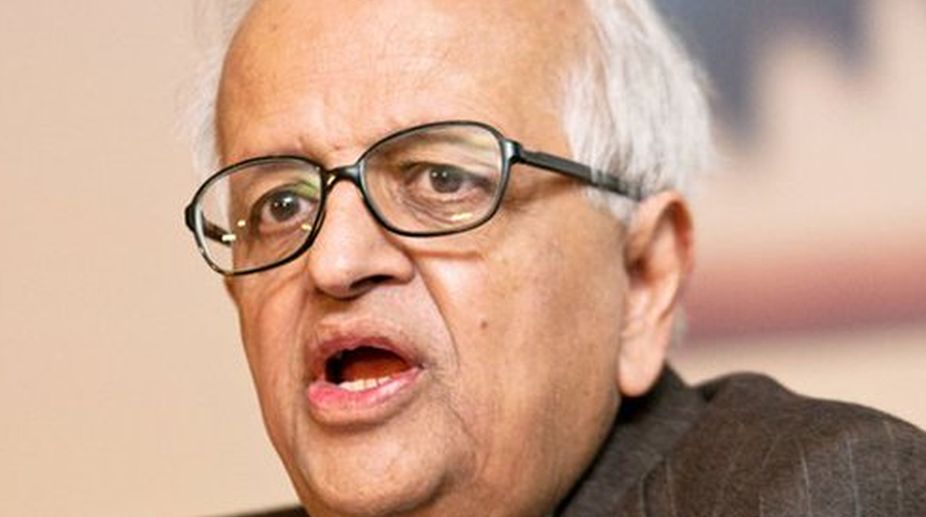Programmes of financial inclusion are part of the larger financial system, the stability of which is essential to the success of the inclusive initiatives, a former Reserve Bank of India (RBI) Governor said on Monday.
Noting that financial inclusion has to go hand in hand with financial stability, Bimal Jalan emphasised the importance of the latter from the time of his stewardship of RBI in the 1990s during the Asian financial crisis when India faced a precarious balance of payments situation and the rupee was depreciating rapidly.
Advertisement
“Financial inclusion has always been part of our larger financial system and has been accompanied by financial stability,” Jalan said at the Inclusive Finance India summit organised by IFMR Lead.
“It is essential that we provide financial inclusion without upsetting financial stability and we are in a position to do so. We have high reserves and our debt-to-GDP ratio is very good.”
Jalan noted that financial inclusion had increased in India with the help of information technology.
“Transfer is happening in the banking system and we do as we go along… What is required is the accessibility of credit and the accountability of the credit provider,” he added.
Economist and former MP C. Rangarajan said that as part of the banking reforms of the 1990s, the central bank was committed to dismantle the “administrative structure of interest rates” and cut down priority sector lending.
He said all the different mechanisms of financial inclusion that have emerged over the years like cooperative banks, among others, need to be brought together under a single framework.
“The cooperative movement was a big failure, even MFIs (micro finance institutions) have failed in a sense, but we cannot junk these, they need reform,” said Rangarajan, also a former RBI Governor.
“We need to think of an appropriate mechanism to regulate small institutions, how do we preserve them and create a mechanism of supervision.”
Another former RBI Governor, Y.V. Reddy, advocated more small institutions and decentralization.
“Multiplicity of channels is better. We have to consider how to bring in state governments to regulate these institutions,” Reddy said.
He also said the RBI can think of how to build up the regulatory institutions.
The consensus in the panel was that there was a need to balance financial stability along with consumer protection and inclusion.









